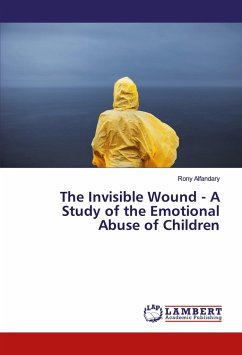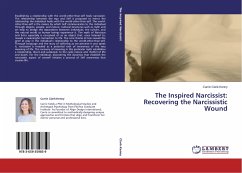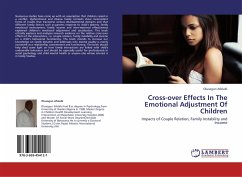
The Invisible Wound - A Study of the Emotional Abuse of Children
Versandkostenfrei!
Versandfertig in 6-10 Tagen
22,99 €
inkl. MwSt.

PAYBACK Punkte
11 °P sammeln!
The emotional abuse of children is recognized as a significant cause for mental disturbances. However, opinions vary on what can be considered as emotional abuse. On the one hand, emotional abuse is seen to be embedded within Western culture child-rearing practice, thus turning every parent into a potential abuser. On the other hand, emotional abuse is seen as a symptom of dysfunctional families, only affecting a limited number. I suggest that the detection of emotional abuse of children needs to take into account cultural practices of child-rearing as it runs along a continuum of severity. Th...
The emotional abuse of children is recognized as a significant cause for mental disturbances. However, opinions vary on what can be considered as emotional abuse. On the one hand, emotional abuse is seen to be embedded within Western culture child-rearing practice, thus turning every parent into a potential abuser. On the other hand, emotional abuse is seen as a symptom of dysfunctional families, only affecting a limited number. I suggest that the detection of emotional abuse of children needs to take into account cultural practices of child-rearing as it runs along a continuum of severity. The ecological model attempts to describe the conditions for the occurrence of emotional abuse which can assist social workers who work directly with children at risk and offer them assistance which can sometimes prevent later pathology.












